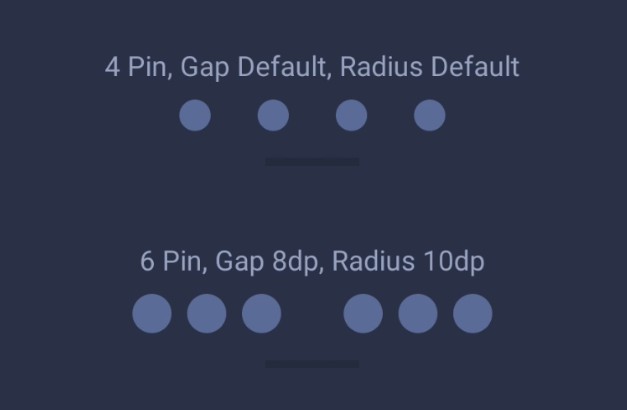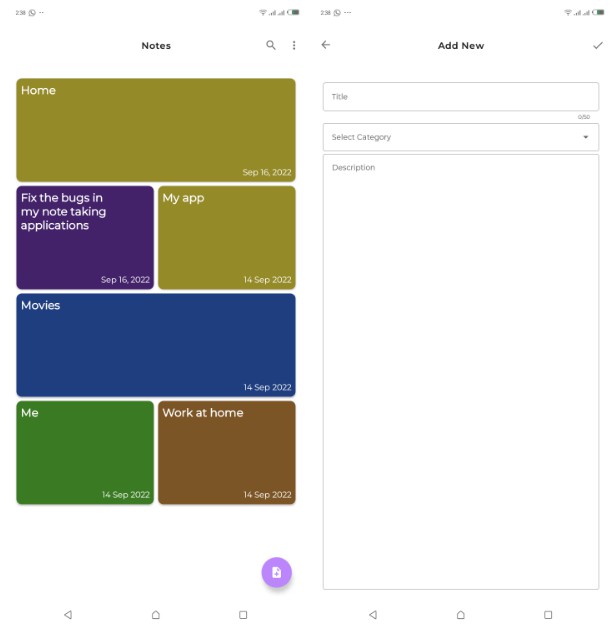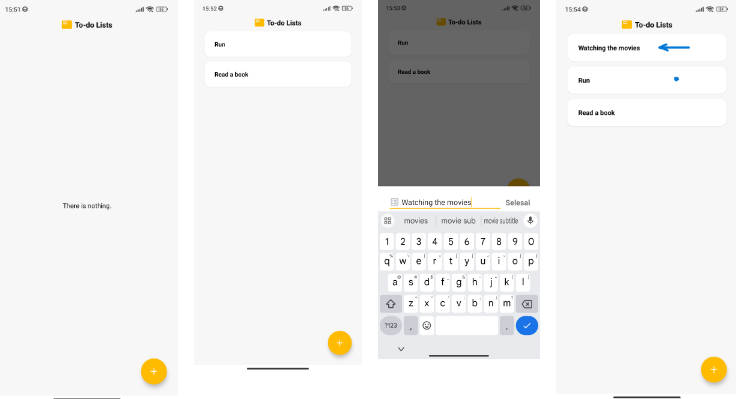What is Realm?
The Realm is an object and mobile database. It’s a data-storage solution for mobile and web development. A simpler definition would be that the Realm is where your app’s or website’s data is stored and managed. One could say that the Realm mobile database is the perfect replacement for SQLite and Core Data.
What are the Benefits of Realm Database?
Are you looking for a short, precise list of points to choose Realm? Here’s what you are looking for.
Benefits of using Realm:
- Build apps faster
- Build bigger & better apps
- Reduce experience latency & server bills
- Get “offline mode” for free
- Craft experiences to a higher level
- Program for more than one app platform
ِAbout Project :
This is a simple Note project showing how to use CRUD Operations in Realm database.
- create a Note
- Read Note
- update Note
- delete Note
- Delete All
ِRoom (VS) Realm :
Realm
A relatively fast and convenient library, all links are simply implemented, which is related to the object orientation of the database. Excellent documentation. Is, perhaps, one of the best options for storing data on a mobile device at the moment, the minus can only be an increase in the size of the apk-file by 2.5 MB.
Room
An interesting solution presented on Google I / O 2017 is optimal for working with the database on Android OS. Despite the fact that it is necessary to use explicit SQL requests, the library turned out to be quite convenient and I liked it personally. Performance is in the lead, so I would advise you to choose this particular library. The big advantage of this is based on a built-in SQLite database. Since this solution, submitted by Google, will quickly become popular, and, therefore, there will be no problems with finding solutions to problems that occur along with it.
Realm uses more RAM and increases the apk size, and build time. So I prefer Room.
There are comparison: https://github.com/AlexeyZatsepin/Android-ORM-benchmark




